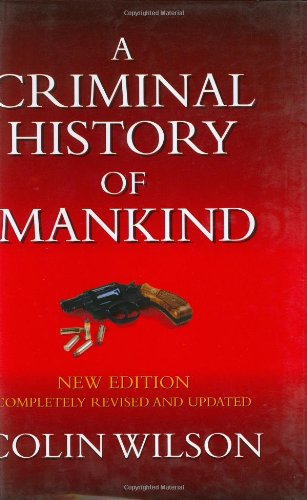

Most ebook files are in PDF format, so you can easily read them using various software such as Foxit Reader or directly on the Google Chrome browser.
Some ebook files are released by publishers in other formats such as .awz, .mobi, .epub, .fb2, etc. You may need to install specific software to read these formats on mobile/PC, such as Calibre.
Please read the tutorial at this link: https://ebookbell.com/faq
We offer FREE conversion to the popular formats you request; however, this may take some time. Therefore, right after payment, please email us, and we will try to provide the service as quickly as possible.
For some exceptional file formats or broken links (if any), please refrain from opening any disputes. Instead, email us first, and we will try to assist within a maximum of 6 hours.
EbookBell Team

4.7
36 reviewsColin Wilson tells the story of human violence from Peking Man to the Mafia - taking into account the calculated sadism of the Assyrians, the opportunism of the Greek pirates, the brutality that made Rome the ‘razor king of the Mediterranean’, the mindless destruction of the Vandals, the mass slaughter of Genghis Khan, Tamurlane, Ivan the Terrible, Vlad the Impaler and more. Each age has a unique characteristic pattern of crime. In the past three centuries crime has changed and evolved until the sex killer and the mass murderer have become symbols of all that is worst about our civilization. But this is not just a study in human depravity; it is an attempt to place crime in perspective against human discovery, exploration and invention. The result is a completely new approach to the history and psychology of human violence.
**
About the AuthorColin Wilson lives in Cornwall with his wife. He was born in Leicester in 1931 and left school at sixteen working in several jobs before becoming a full-time writer with the publication of ‘The Outsider’. He is a renowned authority on the paranormal and is the author of over fifty books, with subjects ranging from mysticism to criminology. He has also written articles, plays and contributed to several newspapers and journals. He regards himself primarily as a philosopher concerned with the meaning of human existence, but unlike many ‘existentialists’, his outlook is basically optimistic.